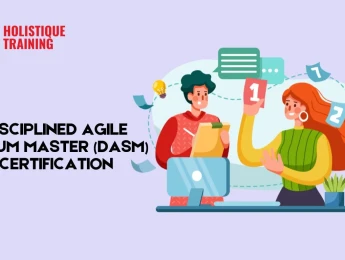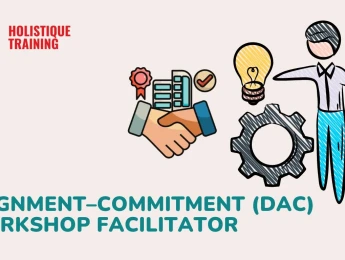Project management is recognised as the best way to ensure that complex additions to any company are added and completed in a timely and organised manner that considers the budget and stakeholder needs. This means that there is a lot of personnel involved in project management, and this course specifically focuses on those who are not actively part of the management team, be they administrators, stakeholders or others involved. Therefore, the course will cover project planning, organisation, and control from concept to implementation and closure. Every project team member has a crucial role to play, no matter what project size they are involved in.
This course ensures a solid foundation for all fundamental project management techniques so that you will understand your role and be successful and confident. It is a great starting point for progression to project manager in the future. In the course, you will be introduced to why projects can become complex and how the planning stages can make a vast difference to the outcomes. You will be able to recognise and control/manage project risks, and learn about change management and adapting when needed. You will gain insight into the implementation of the project and understand how each team member fits into the structure and is important.
Upon completion of this course, participants will be able to:
- Understanding the basic aspects of managing projects
- Apply best practices in planning/organising projects
- Familiarise with essential project management vocabulary and terminology
- Apply basic project management knowledge, skills, tools and techniques
- Plan, organise and control project activities, project management skills
- Implement the five project management processes
- Understand the ten knowledge areas of project management
- Understand the importance of hard and soft skills when successfully managing a project.
- Proactively plan, monitor, track, update and control risks
- Find opportunities to increase the viability of project success
- Manage the needs, concerns and expectations of stakeholders
- Establish effective and efficient communication with stakeholders
- Work effectively within a project team
This course is intended for
- Ministerial & Ministerial Committee Level Professionals
- Governing Body & CEO Level Professionals
- Executive Management and Directors
- Government Relations Officers
- Public Affairs Officers
- Public Relations Officers
- Public Affairs Professionals
- Public Relations Professionals
- Policy Makers/Officers/Analysts/Professionals
Teaching takes place in a variety of settings, including face to face in a classroom environment. It will ensure that participants can expand their knowledge of the subject and increase their skill set. The course is delivered via various methods by a specialist tutor. This will include PowerPoint presentations, reviewing articles and other relevant materials, group or individual exercises and discussions. There may be some independent work set, and the course will require submitting articles to demonstrate understanding and an end-of-course test. Note-taking is encouraged, and you are welcome to use electronic devices to do this.
The course manual will form part of the learning but give you references for the future. You are encouraged to ask questions and, if needed, spend time one-on-one with your tutor to review any issues. During your time in the classroom, you will be able to network with peers in similar roles.
Day 5 of each course is reserved for a Q&A session, which may occur off-site. For 10-day courses, this also applies to day 10
Section 1: What is Project Management
- What is a project? Definitions
- Problems and difficulties associated with projects
- Issues arising from not using project management
- What is project management?
- The project/product lifecycle
- Project phases
- Initiating a project
- Project justification
- The project plan/project planning process
Section 2: Risk Management and Project Planning
- The ISO-21500 Guidance for Project Management
- Risk Identification and management
- Stakeholders in project management
- Qualitative & Quantitative Risk Analysis
- Scope/Schedule/Cost planning
- Quality/Human resource/Communications planning
- Procurement planning/Risk Response Planning
- The contents of a Project Management Plan (PMP)
- Level of planning detail – the Work Breakdown Structure (WBS)
- The Organization Breakdown Structure (OBS)
- The Responsibility Assignment Matrix (RAM)
Section 3: Project Estimating, Resourcing and Scheduling
- Project Estimating
- Time Scheduling (the critical path)
- Network Logic and Dependency Analysis
- Preparing for Project Execution
- Designing the monitoring process
- Manage schedule, cost and resource performances
- The project control process (Issue and Change management)
- Develop the project charter
- Establish the preliminary project team
Section 4: Controls, Performance Monitoring and Interfacing
- Change control
- Document Control
- Earned Value Management (EVM)
- The Requirement for Communication in Projects
- Interface Management
- Project Team Development
- Project Reporting
- Manage project team/stakeholder interfaces and relationships
- Obtain and update lessons learned/Post-project evaluations
Section 5: Leadership, Communication and Negotiation
- The Project Management Office (PMO)
- Critical Success Factors (CSFs) in managing projects
- Leading by Influence
- project team member: responsibilities/challenges/competencies/skills
- The Hard/Soft skills in managing a project
- Communication, Delegation and Motivation
- Stakeholder Management
- Preparing and conducting Negotiations
- Project closure objectives
- Close procurement contracts
- The “Punch-List” approach
- The project completion check-list
- Hand Off deliverables
Upon successful completion of this training course, delegates will be awarded a Holistique Training Certificate of Completion. For those who attend and complete the online training course, a Holistique Training e-Certificate will be provided.
Holistique Training Certificates are accredited by the British Assessment Council (BAC) and The CPD Certification Service (CPD), and are certified under ISO 9001, ISO 21001, and ISO 29993 standards.
CPD credits for this course are granted by our Certificates and will be reflected on the Holistique Training Certificate of Completion. In accordance with the standards of The CPD Certification Service, one CPD credit is awarded per hour of course attendance. A maximum of 50 CPD credits can be claimed for any single course we currently offer.
- Course Code PO4-103
- Course Format Classroom, Online,
- Duration 5 days














